The Marine Ecology Research Centre. MERC pledged to address the increasing threats on marine life, combating its effects by returning to nature what was previously destroyed.
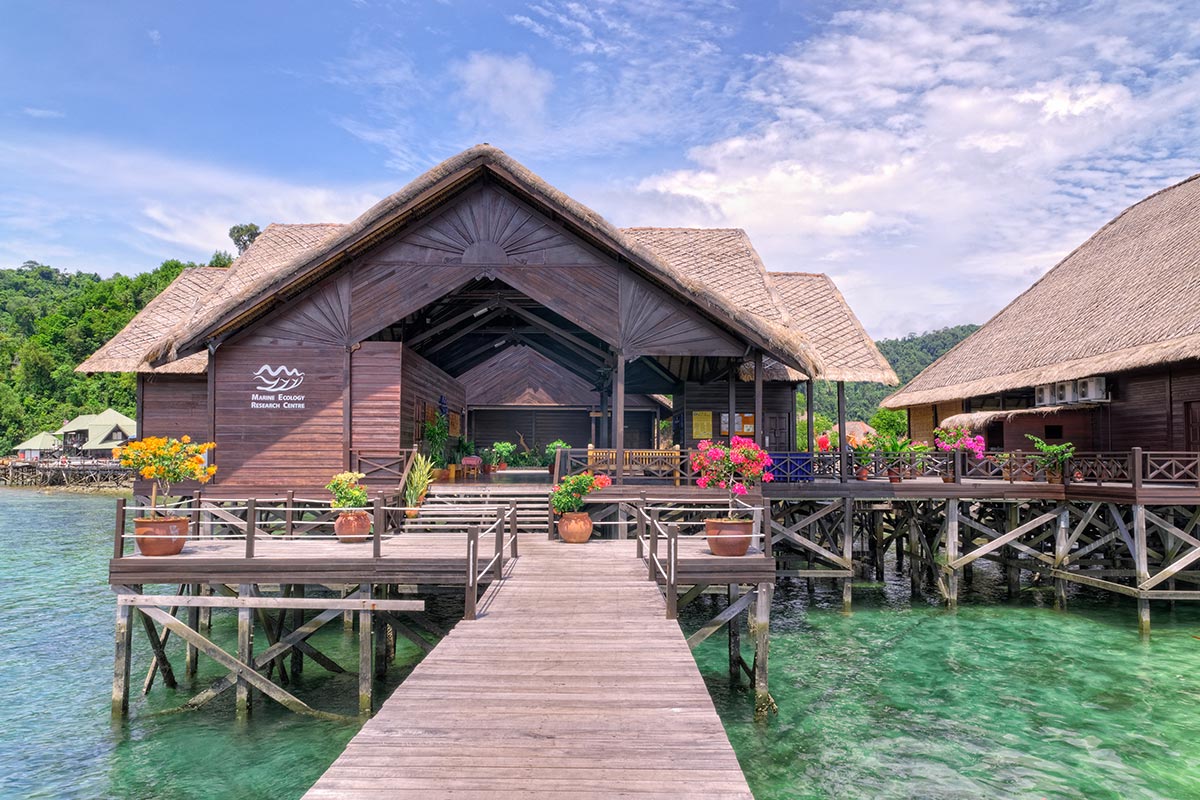
MERC, also known as Marine Ecology Research Centre, is located at Malohom Bay of Gaya Island, approximately 20 minutes boat ride from the mainland of Kota Kinabalu, Sabah’s capital city.
MERC is the first in Malaysia that has successfully produced all seven species of giant clams found in Malaysian waters. MERC’s innovative educational methods have been recognized, winning the Most Innovative Tourist Attraction Eco-Tourism Conservation Award 2008-2009 by Ministry of Tourism Malaysia.
“This is indeed a lifetime experience. You are here doing the most noble work of all. You are preserving and saving life on earth. Congratulations. I wish the whole world was with us here. My greatest appreciation and respect, Taleb Rifai.”
by The Secretary General of UN-World Tourism Organization, during his visit on 6th October 2010
Three marine ecosystems can be found in Malohom bay – coral reefs, mangroves and sea grass beds – each with their respective crucial roles in supporting life found both on land and in the water
Recognition of these important ecosystem functions and the myriad of life within them create purpose for MERC. Coral restoration work aims directly at improving the conditions of the reefs. Giant clam propagation aims to return these species to the environment, in turn improving the conditions of the underwater world. Environmental education teaches the uninformed about these functions in hopes to increase support for the plight of these ecosystems.
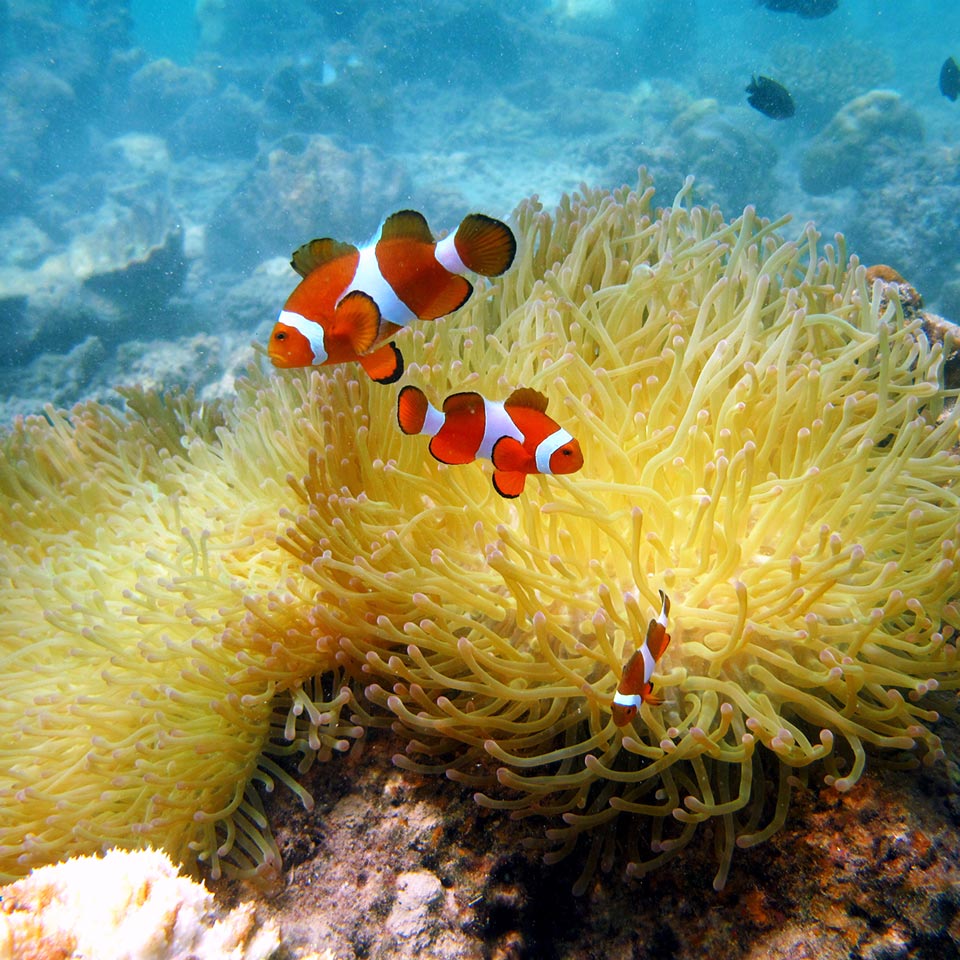
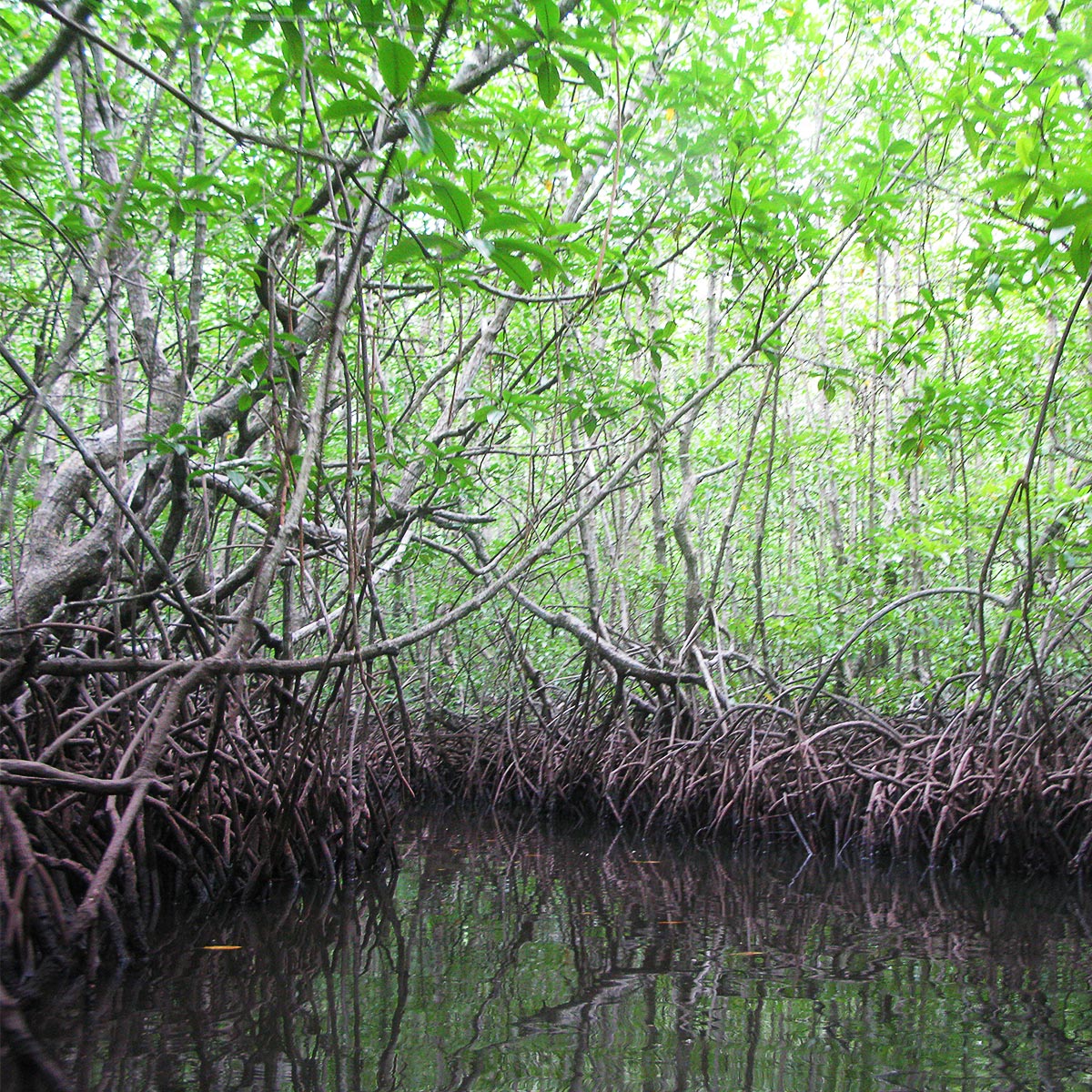
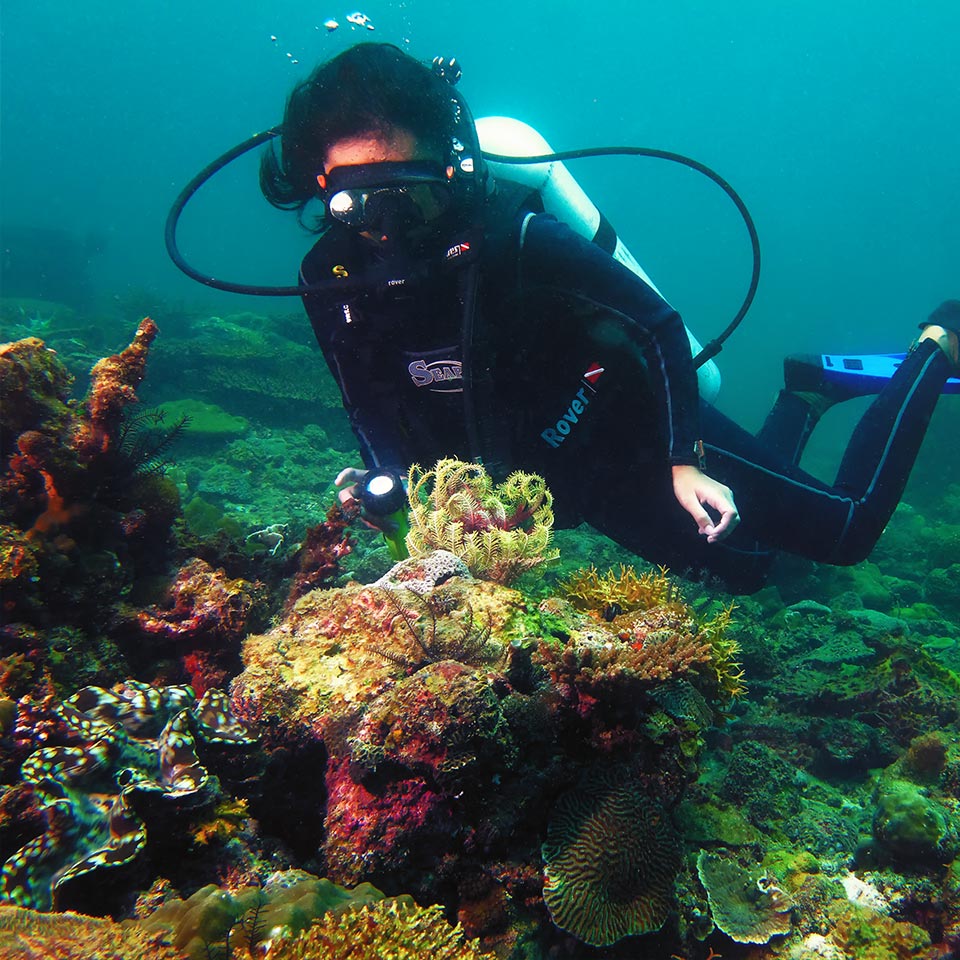
Visitors to MERC are from of all ages and backgrounds, so packages are suited to a variety of tastes, for individuals or groups of up to 30, from an hour-long tour of the centre to full day programmes where one can experience firsthand the work of marine biologists.
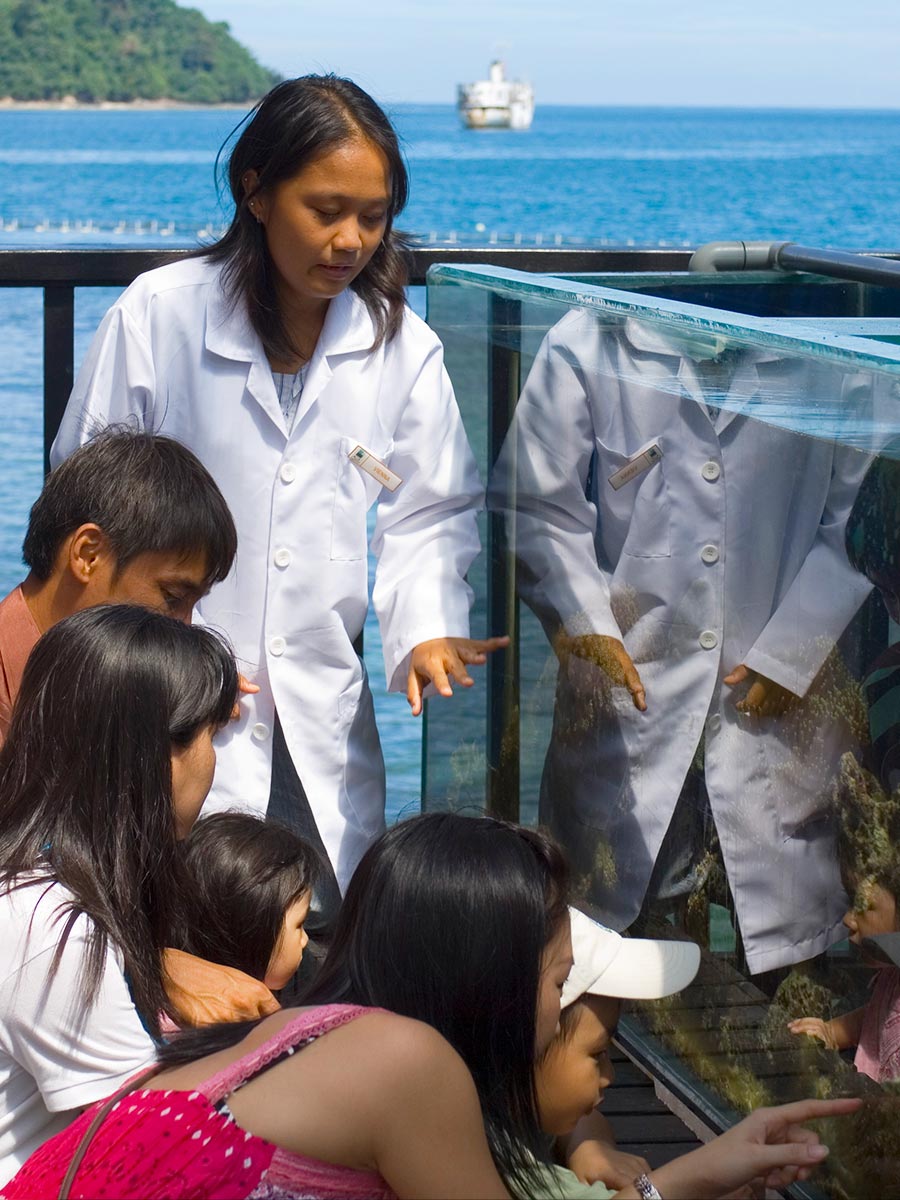
Day trips to MERC expose visitors to the important work conducted through a guided tour.
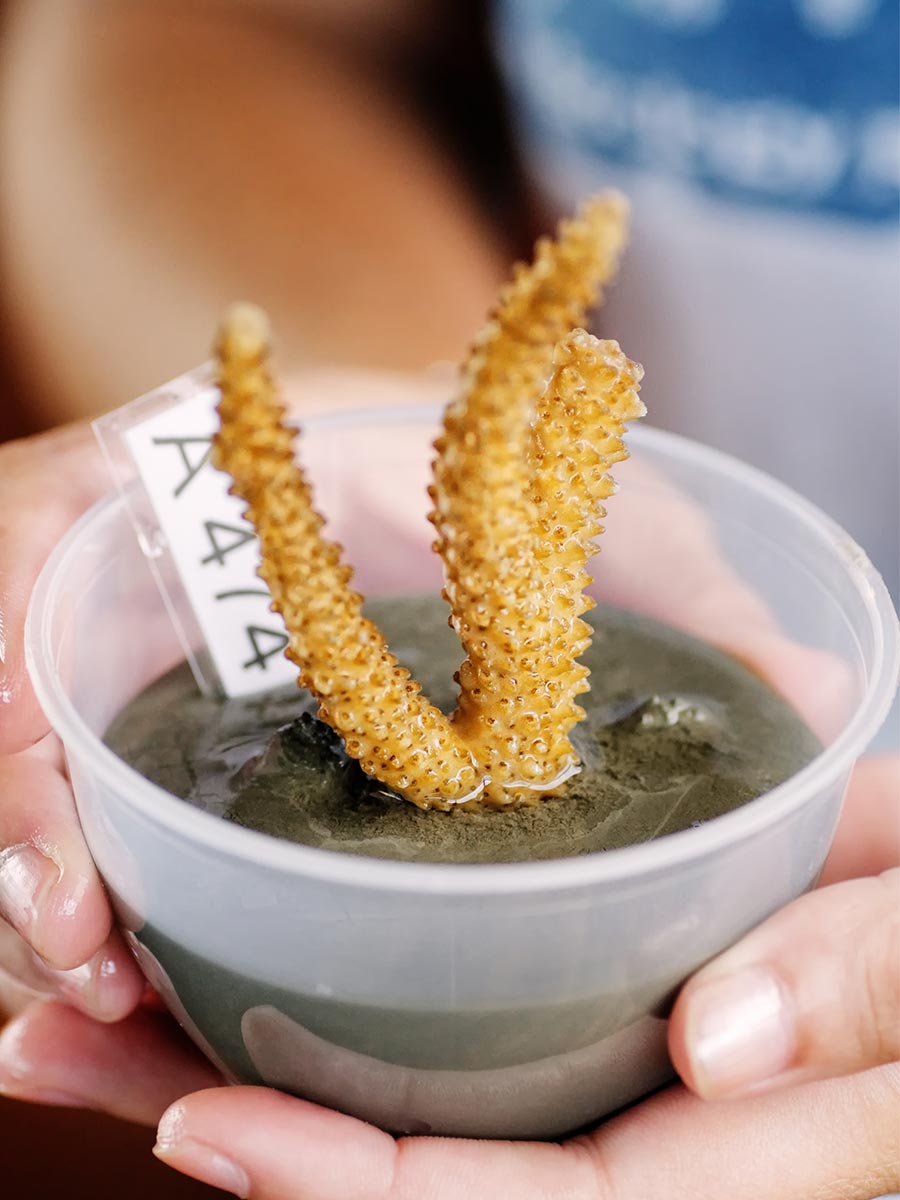
At MERC, there is a strong belief that directly involving visitors in conservation work instils a sense of responsibility and ownership in caring for the environment. Visitors can also choose to adopt the corals they plant and receive periodic updates on the progress of their adopted coral online.
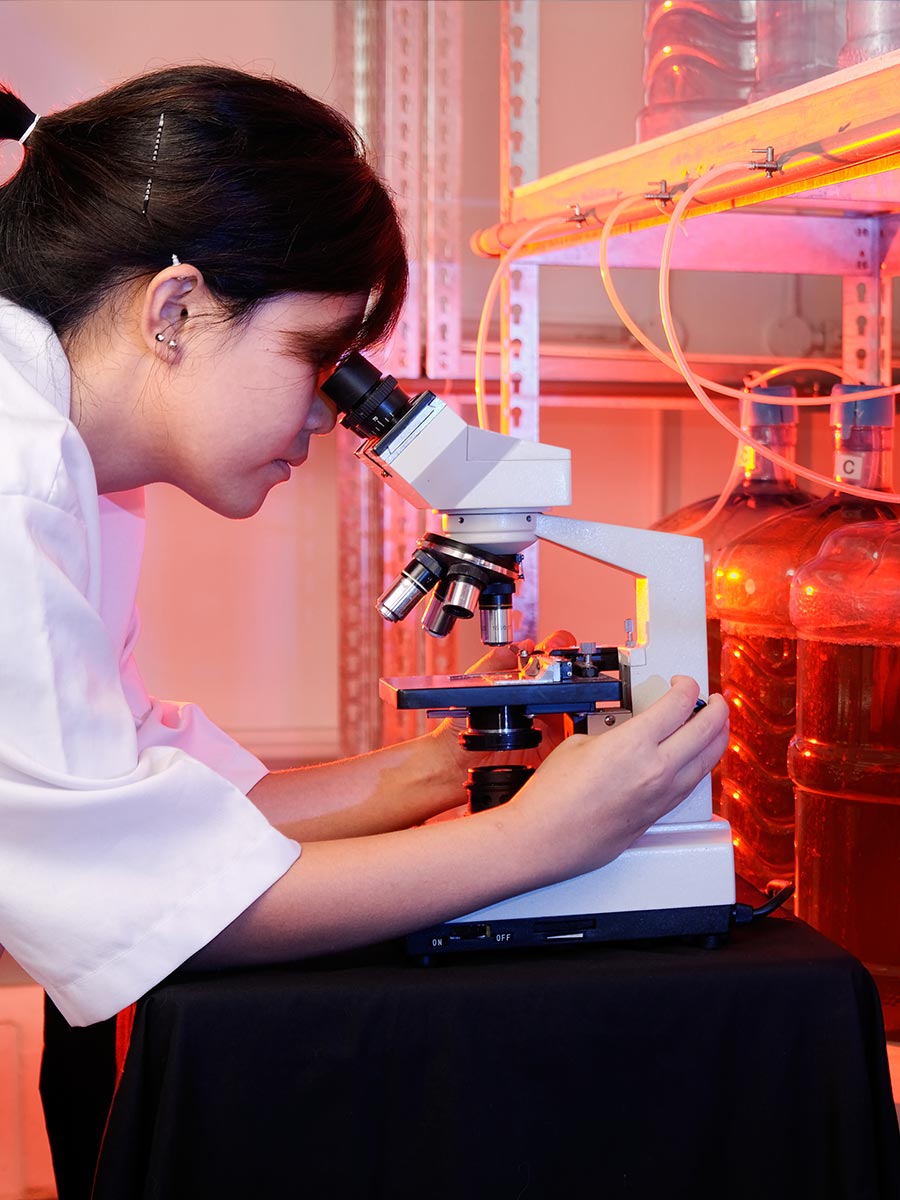
Ever wondered what it takes to become a Marine Biologist? If yes, then sign up and work with our Marine Biologists and spend A Day as a Marine Biologist, a programme consist of a day-long experience which will provide a glimpse behind the scenes of marine biologists and the painstaking work and research that goes into producing giant clams and restoring them to the reefs.
Over the past tens of thousands of years, hundreds of living species have been lost through extinction due to climatic and environmental changes. Direct human behavior is another major cause of marine life degradation. Coastal development causes irrecoverable damage to coral reefs due to marine dredging and sea front reclamation, eutrophication from agricultural fertilizers, sewage outflows and also smothering from sediment runoff.
MERC’s mission is to produce life of threatened and endangered species that are likely destined for extinction. This mission has translated into a range of functions conducted at MERC
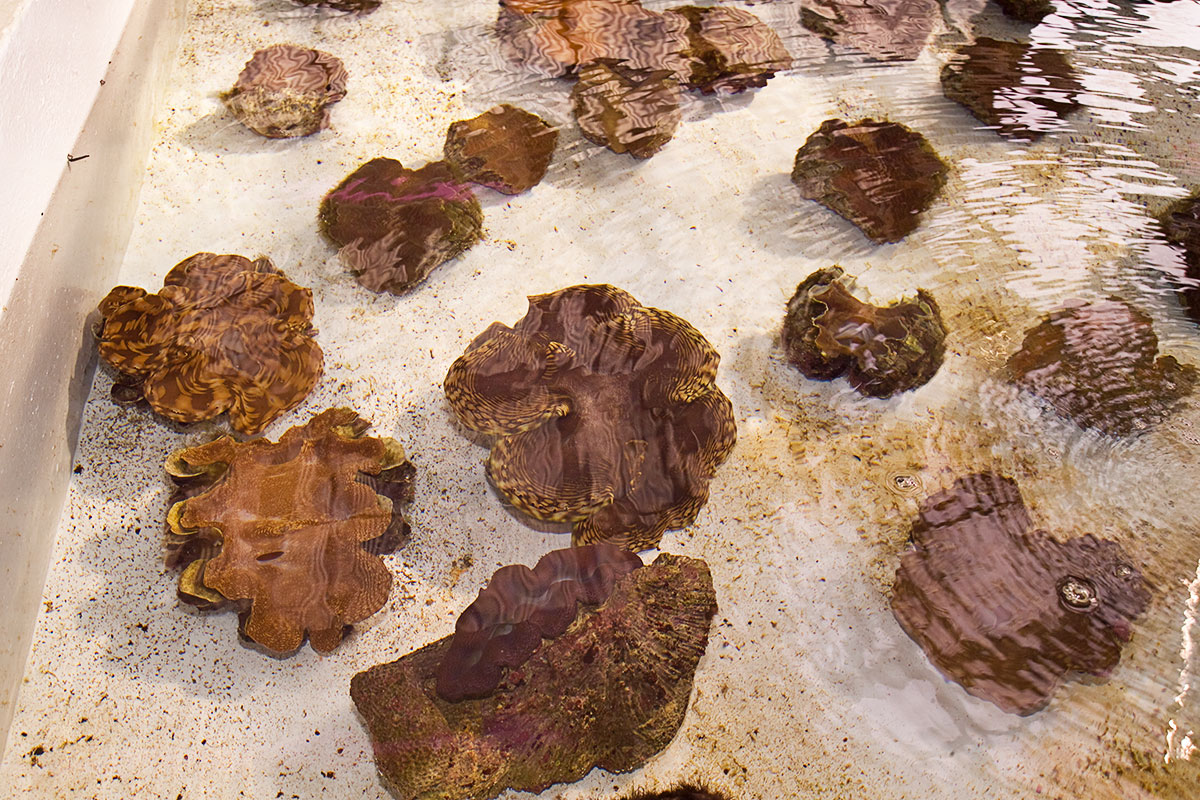
One of the major activities at MERC is its Giant Clam Propagation Programme which was to actively propagate giant clams to be re-stocked in the sea.
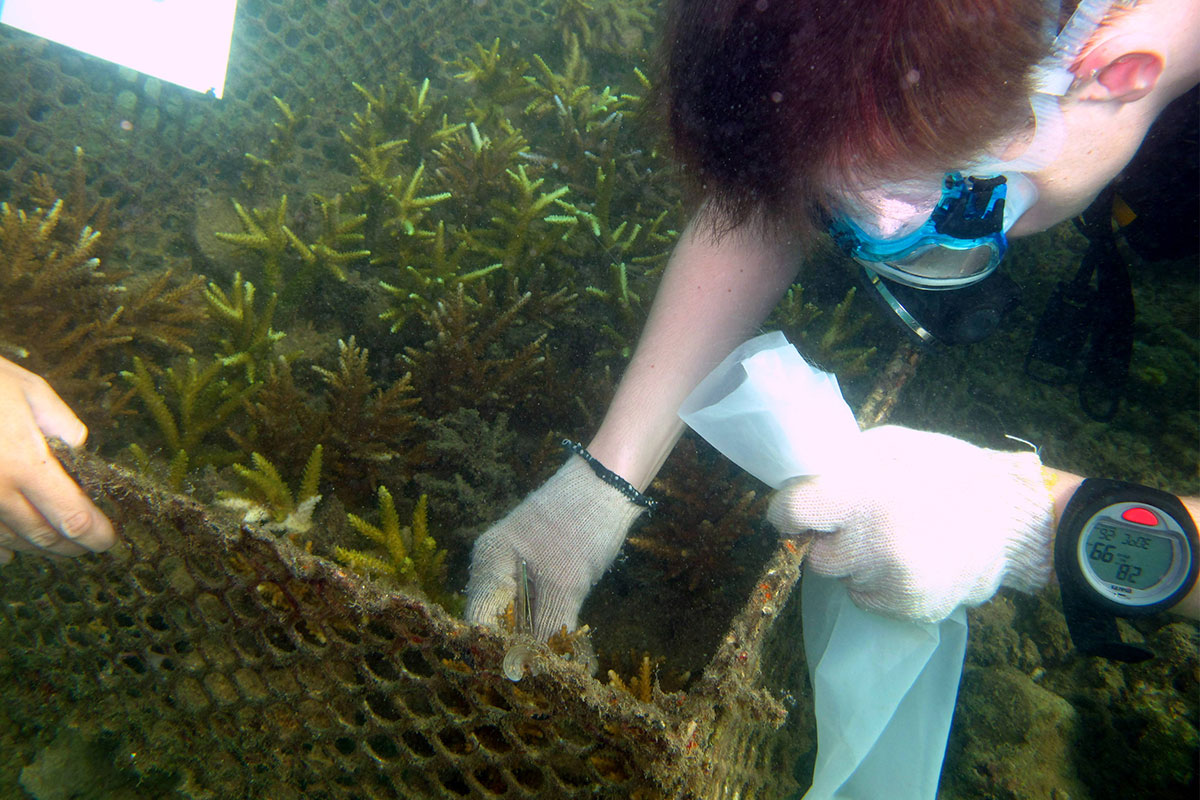
The Coral Reef Restoration Programme was created to restore the condition of the reefs, reviving this important fish habitat and encouraging fish population growth.
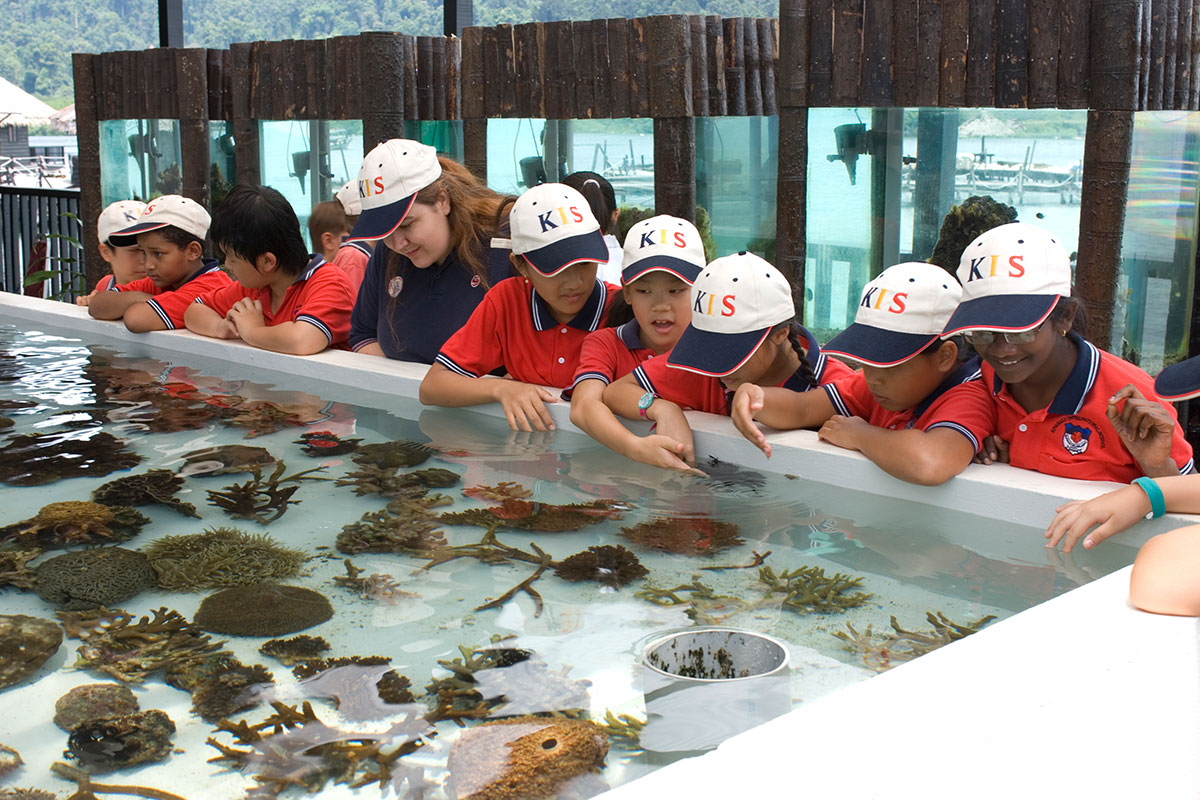
The core function of MERC’s Environmental Education Programme is to impart to every visitor the importance and the need to care and protect our sensitive marine ecosystems. School children and visitors alike are introduced to the beauty of coral reefs, their resident marine life as well as the threats they face.
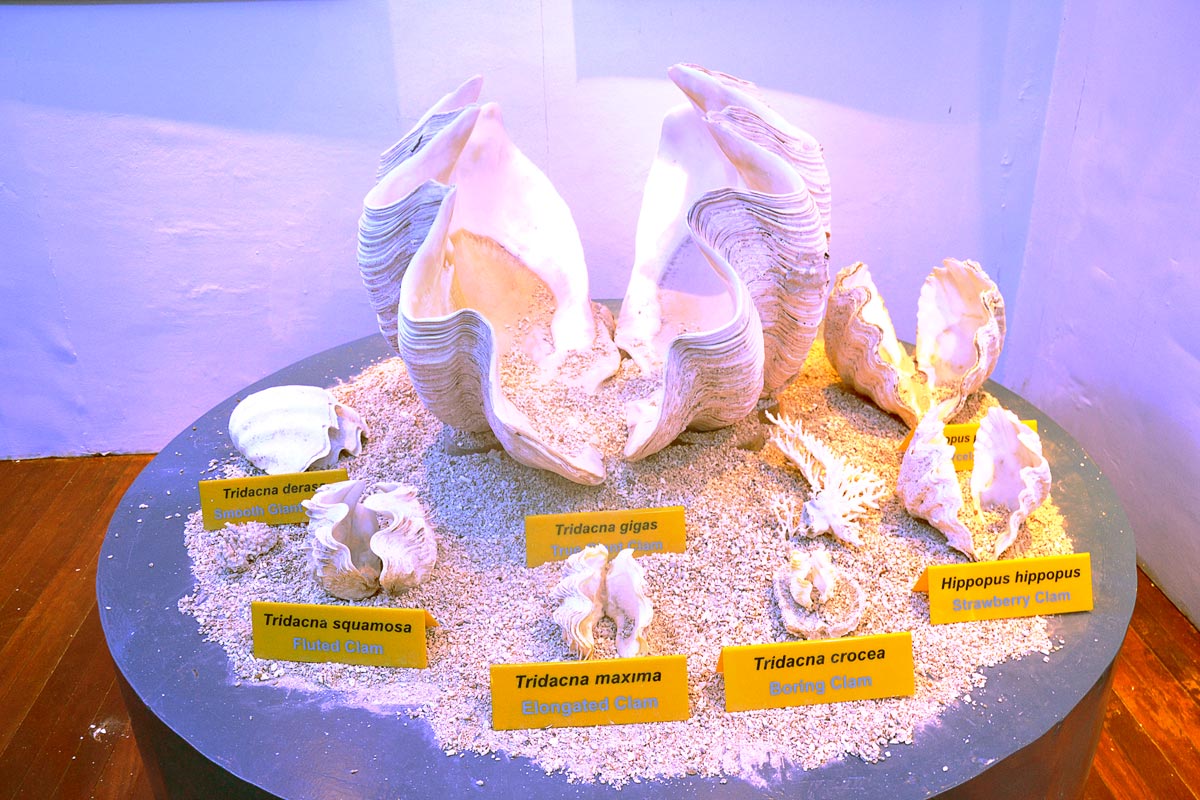
Giant clams are slow growing and have a minimal defense system which makes them highly susceptible to any threat, whether from natural enemies or human threats such as unsustainable collection for seafood restaurants or the ornamental fish trade.
Malaysia’s giant clams are fast disappearing. Two of Sabah’s seven wild species, including the biggest of them all, the Tridacna gigas (which can measure up to 5ft long) have been classified as ‘locally extinct’, the other being Tridacna derasa.
Feel free to ask us any questions, our team is ready to answer your questions and provide information that you need.
Malohom Bay, Gaya Island,
Tunku Abdul Rahman Park,
88000 Kota Kinabalu,
Sabah, Malaysia.
Jesselton Point Ferry Terminal,
Jalan Haji Saman,
88000 Kota Kinabalu,
Sabah, Malaysia.